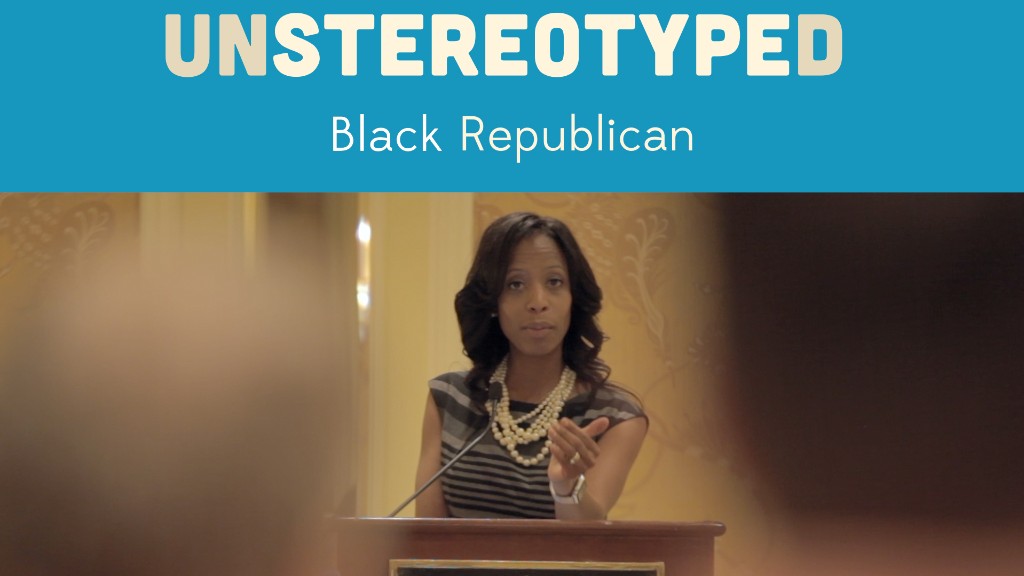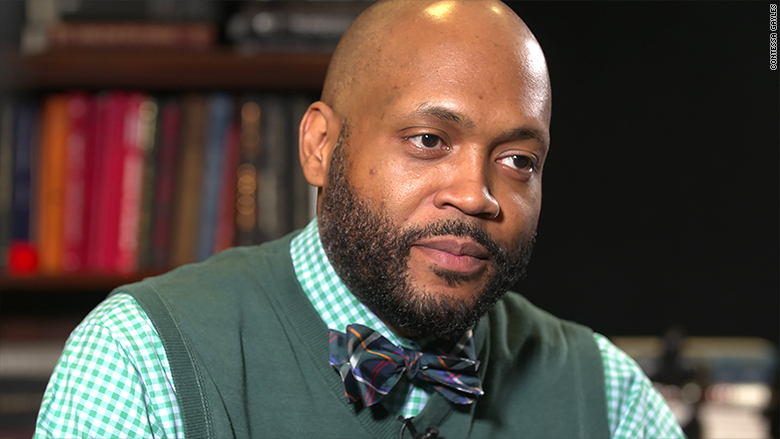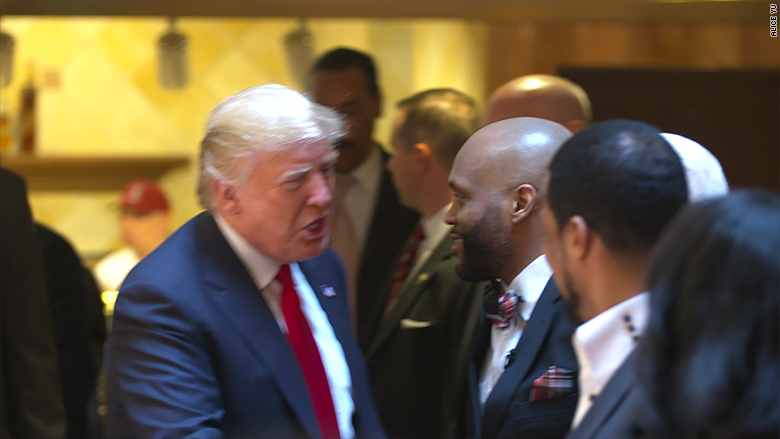
Warning: This story contains language some may find offensive.
It should come as no surprise that Donald Trump has earned scant support among black voters.
Black protesters have been heckled and kicked out of Trump rallies and a black man was sucker punched by a white man as he was leaving another event in North Carolina. Trump has also gained the support of white supremacists including David Duke, the former Grand Wizard of the Ku Klux Klan (Trump later disavowed Duke, but only after many public stumbles and increasing pressure to do so.)
But James Davis, a black conservative pastor in Ohio, doesn't care about any of that.
Davis is an outspoken supporter of the Republican party's presumptive presidential nominee. Last November, he was one of more than 100 black religious leaders who met with Trump in a closed-door meeting.
Davis said the attendees were criticized by black media and other black clergy for attending. "We were called everything but a child of God," Davis said "From sellout to coon."
According to Davis, Trump sat with the group for hours, answering questions about the economy and black Americans. "We went and we saw him, we heard him, and what pulled us to him, for me, was the fiscal conservatism. We talked about the rebuilding of inner cities," Davis said. "That's going to affect black people more than anybody else."
Although just how conservative Trump's fiscal policies are remain in question. So far his proposals have ranged from major tax cuts to preserving entitlement programs like Medicaid and Medicare, both of which would be big drivers of American debt.

Davis grew up in the inner city. A child of the East side of Cleveland, Ohio, both of his parents died before he turned five. "I should have been a statistic," he said.
Instead, he was adopted by a middle class pastor's family and spent his adolescence living in the suburbs. Davis credits his religious upbringing with his conservatism. He began listening to Rush Limbaugh in his early 20s.
"It made more sense to me than what I had been raised in, or the party line, so to speak, of liberalism, or progressivism," Davis said of Limbaugh.
Davis likens his excitement for Trump's presidential run to what he felt when Ross Perot ran for president in 1992 as a rogue, third party, anti-establishment candidate. "I was going 'Wow! Somebody is finally saying something that these other two folks aren't saying'," said Davis.

Even though Trump kicked off his campaign by referring to some undocumented Mexican immigrants as rapists and criminals then later called for a temporary ban on all Muslims entering the United States, a small percentage of voters of color still coalesce around him. Last month, a few dozen Trump supporters -- including Sikhs, Native Americans, Latinos and blacks -- gathered at Trump Tower in Manhattan to show their support.
"We made history [with President Obama], now it's time for us to make sense," said Kenneth Atkins, a black Trump supporter at the event.
Black Republicans often justify their support for more extreme candidates like Trump for a variety of reasons, ranging from "ideology to opportunism to frustration with 'establishment' politics," said Leah Wright Rigueur, an assistant professor of public policy at the Harvard Kennedy School of Government and the author of the book The Loneliness of the Black Republican.
Related: Meet the white valedictorian of a historically black college
"Black Trump supporters have been able to look past the candidate's racialized campaign," said Wright Rigueur. Some black Republicans share Trump's views on immigration while others support his talk of jobs and improving the economy, she said.
Many black voters abandoned the Republican party in 1964, when Barry Goldwater was the GOP's presidential nominee and voted against the Civil Rights Act. At the time, white nationalists and members of the KKK voiced their support for a Goldwater presidency.
Since then, the party has struggled to gain traction with black voters. In 2012, just 6% of black voters cast a ballot for Mitt Romney in the presidential election. That number prompted the GOP to create a plan to bring black and brown voters into the fold.
Related: Muslim feminists fight for change
But then Trump came onto the scene -- and his own history with the black community has also been tenuous. In 1973, the Justice Department filed a lawsuit against Trump, his father and Trump Management alleging the real estate company had discriminated against apartment applicants based on their race. A Trump representative did not immediately reply to an email requesting comment on the lawsuit. In 2011, Trump began ridiculing Barack Obama by asking to see his birth certificate and fueling speculation that the President was not an American citizen.
But black Republicans are warming to Trump. In January, The National Black Republican Association endorsed Trump, saying the candidate had "demonstrated that he can push back against the mainstream media, end political correctness and free black communities from the destructive grip of socialist Democrats." Earlier this month, Buzzfeed reported that black conservatives were urging Trump to be more vocal about issues affecting the black community in order to gain their support.
See the entire Unstereotyped series
For Davis, Trump's rhetoric is unimportant. "I live in the upper Midwest, and the infrastructure is falling down where we live, from the bridges to the streets to everything," Davis said. "To have a builder, someone that's done something in office, to say that he is going to redo infrastructure, and bring jobs back to the community through tax cuts and these types of things, then my ears are all open."
Like many Trump supporters, Davis said he appreciates Trumps candor, regardless of whether it's openly supportive of the black community or not. "I don't need somebody to scratch me on my head, and tell me I am wonderful," Davis said.


